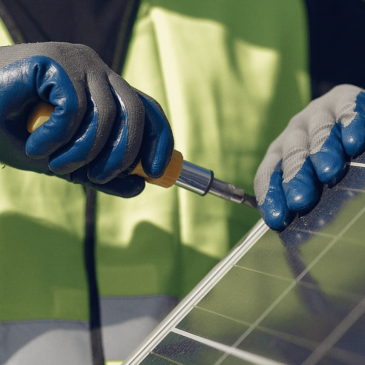Homeowners: Don’t Make These Mistakes When You Purchase Solar
With the desire to reduce electricity bills and the increasing affordability of solar panels, there is growing interest in renewable energy among homeowners. While this is a commendable step towards sustainability and energy independence, the process of buying and installing solar panels can sometimes be fraught with pitfalls.
In this post, we’re going to review three of the most common mistakes homeowners should try to avoid when buying residential solar panels; in part 2, we’ll review another three mistakes worth avoiding.
#1. Not Assessing Your Home’s Solar Potential
One of the first and most crucial steps to take before you make the leap into solar is to assess your home’s solar potential. Many homeowners rush into purchasing solar panels without evaluating whether their home is suitable for solar energy production. Key factors include:
- Roof Orientation and Angle: South-facing roofs typically receive the most sunlight in the Northern Hemisphere, while north-facing roofs are preferable in the Southern Hemisphere. The angle of your roof also affects the efficiency of solar panels.
- Shade: Trees, buildings, or other obstructions can cast shadows on your panels, significantly reducing their efficiency. Tree pruning or even tree removal may be required for your system to operate efficiently.
- Roof Condition: Ensure your roof is in good condition and can support the additional weight of the panels. If the roof is old or damaged, then it may need repairs or reinforcements before installation.
Ignoring these factors can lead to poor energy production and a lower return on investment, so before you purchase your solar panels, have a solar installer perform an evaluation on your home.
#2. Failing to Research Solar Panel Options and Providers
Not all solar panels are created equal; panels may vary in terms of efficiency, durability, and cost. If you’re not careful, you would wind up with solar panels that simply aren’t what you thought they were. Some common mistakes include:
- Choosing the Cheapest Option: While it’s tempting to go for the least expensive solar panels, cheaper panels often have lower efficiency and shorter lifespans. Investing in high-quality panels from reputable manufacturers can be more cost-effective in the long run. Before buying, check online for customer reviews to make sure the panels you are thinking about buying are worth the price.
- Overlooking Warranties: Different panels come with different warranty terms. Never purchase solar panels without knowing what the warranty is because a good warranty can save you money on repairs and replacements, sometimes even years down the road.
- Not Vetting Providers: Researching your solar panel provider is just as important as choosing the right panels. Look for providers with good reviews, proper certifications, and a solid track record.
#3. Misunderstanding Financing Options
Solar panels are a significant investment, but financing can help make them more affordable for many homeowners. But unfortunately, some homeowners make mistakes when it comes to financing. Here are some common pitfalls to be aware of:
- Not Exploring All Financing Options: Traditional options include purchasing the panels outright, solar loans, leases, and power purchase agreements (PPAs), but some homeowners choose to tap into their home equity to cover their solar costs as well. Each option has its pros and cons, and the best choice depends on your financial situation and long-term goals.
- Ignoring Incentives and Rebates: Governments and local utilities often offer incentives and rebates for installing solar panels and these can significantly reduce the upfront cost. Failing to research and apply for these incentives can mean missing out on substantial savings, but just as important is understanding how these programs work, so you know what to expect and how much you can save.
- Not Considering the Impact on Home Value: Properly installed solar panels can increase your home’s value, but financing options like leases and PPAs might complicate future home sales. Understanding the long-term financial impact of your solar installation and how you choose to finance it is crucial.
Investing in solar panels is a smart move towards sustainability and energy savings, but avoiding these common mistakes is crucial to ensure you get the best return on your investment. Learn more next month in our follow-up post!

